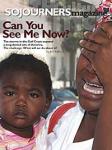What I have learned as a farmer I have learned also as a writer, and vice versa. I have farmed as a writer and written as a farmer. This is an experience that is resistant to any kind of simplification. I will go ahead and call it complexification. When I am called, as to my astonishment I sometimes am, a devotee of “simplicity” (since I live supposedly as a “simple farmer”), I am obliged to reply that I gave up the simple life when I left New York City in 1964 and came here to Kentucky. In New York, I lived as a passive consumer, supplying nearly all my needs by purchase, whereas here I supply many of my needs from this place by my work (and pleasure) and am responsible besides for the care of the place.
My point is that when one passes from any abstract order, whether that of the consumer economy or John Crowe Ransom’s “Statement of Principles” or a brochure from the extension service, to the daily life and work of one’s own farm, one passes from a relative simplicity into a complexity that is irreducible except by disaster and ultimately is incomprehensible. It is the complexity of the life of a place uncompromisingly itself, which is at the same time the life of the world, but also the limitations of one’s knowledge, intelligence, character, and bodily strength. To do this, of course, is to accept the place as an influence.
My further point is that to do this, if one is a writer, is to accept the place and the farmer of it as a literary influence. One accepts the place, that is, not just as a circumstance, but as a part of the informing ambience of one’s mind and imagination. I don’t dare to claim that I know how this “works,” but I have no doubt at all that it is true. And I don’t mind attempting some speculations on what might be the results.
To begin with, the work of a farmer, or of the sort of farmer I have been, is particularizing work. As farmers themselves never tire of repeating, you can’t learn to farm by reading a book. You can’t lay out a fence line or shape a plowland or fell a tree or break a colt merely by observing general principles. You can’t deal with things merely according to category; you are continually required to consider the distinct individuality of an animal or a tree, or the uniqueness of a place or a situation, and to do so you draw upon a long accumulation of experience, your own and other people’s. Moreover, you are always under pressure to explain to somebody (often yourself) exactly what needs to be done. All this calls for an exactly particularizing language. This is the right kind of language for a writer, a language developing, so to speak, from the ground up. It is the right kind of language for anybody, but a lot of our public language now seems to develop downward from a purpose. Usually, the purpose is to mislead, the particulars being selected or invented to suit the purpose; or the particulars dangle loosely and unregarded from the dislocated intellectuality of the universities. This is contrary to honesty and also to practicality.
The ability to speak exactly is intimately related to the ability to know exactly. In any practical work such as farming, the penalties for error are sometimes promptly paid, and this is valuable instruction for a writer. A farmer who is a writer will at least call farming tools and creatures by their right names, will be right about the details of work, and may extend the same courtesy to other subjects.
A WRITER WHO is a farmer will in addition be apt actually to know some actual country people, and this is a significant advantage. Reading some fiction, and this applies especially to some Southern fiction, one cannot avoid the impression that the writers don’t know any country people and are afraid of them. They fill the blank not with anybody they have imagined, but with the rhetorically conjured stereotype of the hick or hillbilly or redneck who is the utter opposite of the young woman with six arms in the picture by the late (“alas”) Emmeline Grangerford, and perhaps is her son. He comes slouching into the universe with his pistol in one hand, his prong in another, his Bible in another, his bottle in another, his grandpappy’s cavalry sword in another, his plug of chewing tobacco in another. This does harm. If you wish to steal farm products or coal or timber from a rural region, you will find it much less troubling to do so if you can believe that the people are too stupid and violent to deserve the things you wish to steal from them. And so purveyors of rural stereotypes have served a predatory economy. Two of the Southern Agrarians, I should add, countered this sort of thing with knowledge. I am thinking of John Donald Wade’s essay “The Life and Death of Cousin Lucius” in I’ll Take My Stand, and A Wake for the Living, by Andrew Lytle.
If you understand that what you do as a farmer will be measured inescapably by its effect on the place, and of course on the place’s neighborhood of humans and other creatures, then if you are also a writer, you will have to wonder too what will be the effect of your writing on that place. Obviously this is going to be hard for anybody to know, and you yourself may not live long enough to know it, but in your own mind you are going to be using the health of the place as one of the indispensable standards of what you write, thus dissolving the university and “the literary world” as adequate contexts for literature. It also is going to skew your work away from the standard of realism. “How things really are” is one of your concerns, but by no means the only one. You have begun to ask also how things will be, how you want things to be, how things ought to be. You want to know what are the meanings, both temporal and eternal, of the condition of things in this world. “Realism,” as Kathleen Raine said, “cannot show us what we are, but only our failure to become that to which the common man and the common woman inadequately, but continually, aspire and strive.” If, in other words, you want to write a whole story about whole people—living souls, not “higher animals”—you must reach for a reality that is inaccessible merely to observation or perception but that also requires imagination, for imagination knows more than the eye sees, and inspiration, which you can only hope and pray for. You will find, I think, that this effort involves even a sort of advocacy. Advocacy, as a lot of people will affirm, is dangerous to art, and you must beware the danger, but if you accept the health of the place as a standard, I think the advocacy is going to be present in your work. Hovering over nearly everything I have written is the question of how a human economy might be conducted with reverence, and therefore with due respect and kindness toward everything involved. This, if it ever happens, will be the maturation of American culture.
I have tried (clumsily, I see) to define the places, real and imagined, where I have taken my stand and done my work. I have made the imagined place of Port William, its neighborhood and membership, in an attempt to honor the actual place where I have lived. By means of the imagined place, over the last 50 years, I have learned to see my native landscape and neighborhood as a place unique in the world, a work of God, possessed of an inherent sanctity that mocks any human valuation that can be put upon it. If anything I have written in this place can be taken to countenance the misuse of it, or to excuse anybody for rating the land as “capital” or its human members as “labor,” my writing would have been better unwritten. And then to hell with any value anybody may find in it “as literature.”
Wendell Berry is a novelist, essayist, philosopher, poet, and farmer. Copyright © 2005 by Wendell Berry from The Way of Ignorance. Reprinted by permission of Shoemaker & Hoard Publishers (an Avalon Publishing Group imprint).

Got something to say about what you're reading? We value your feedback!
